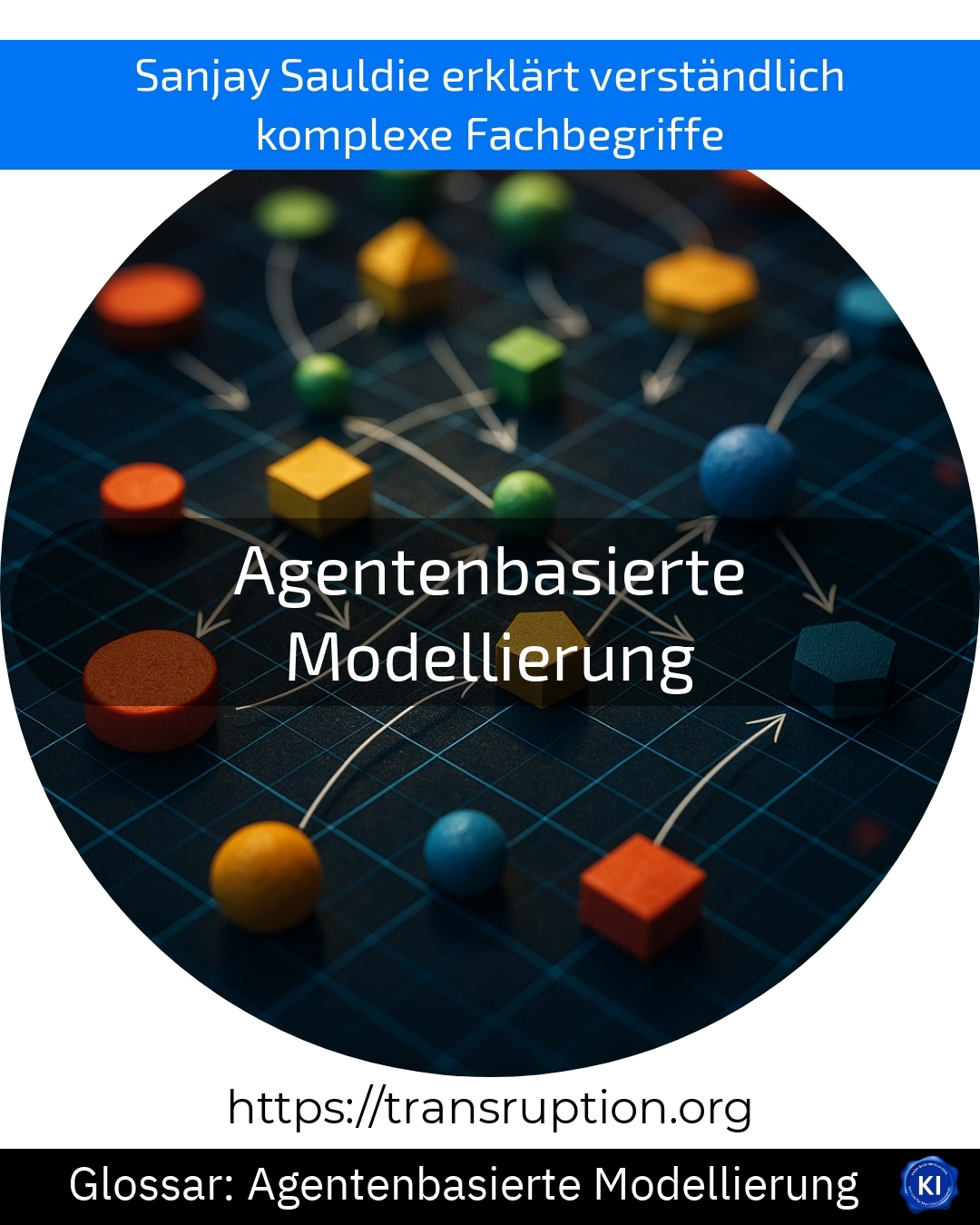Agent-based modelling is a term from the fields of artificial intelligence, big data and smart data as well as industry and Factory 4.0. It describes a method for making complex relationships understandable and predictable with the help of many individual, so-called "agents". Each agent acts for itself, has its own rules and can interact with other agents. Such agents can be people, machines or companies, for example.
A practical example: A company wants to know how a new production line will affect the entire process. With the help of agent-based modelling, all employees, machines and processes are mapped as individual agents. Decision-makers can then use the computer to observe how small changes affect the big picture - for example, more employees on a shift or new machines in use. This allows bottlenecks to be recognised and improvements to be planned in a targeted manner.
Agent-based modelling is particularly helpful when processes are not linear and predictable. It enables better decisions to be made on the basis of realistic simulations, thereby saving time and costs.















